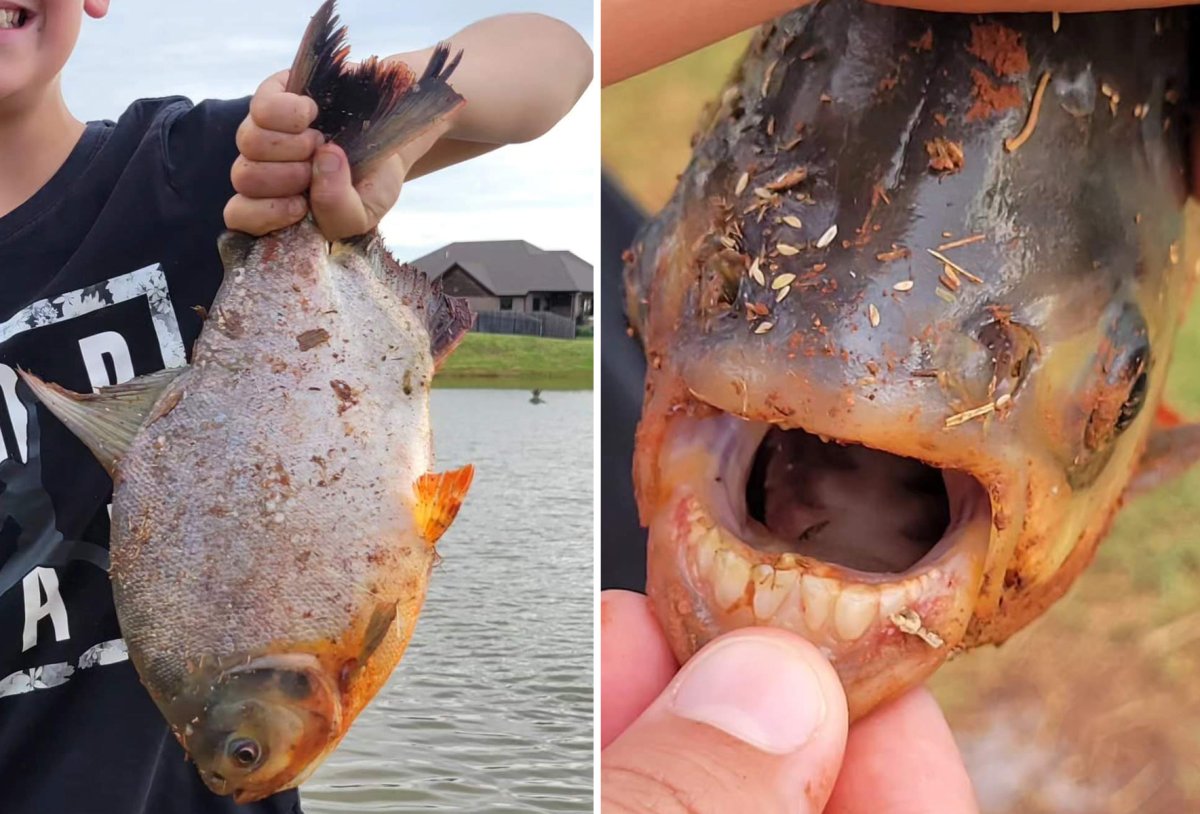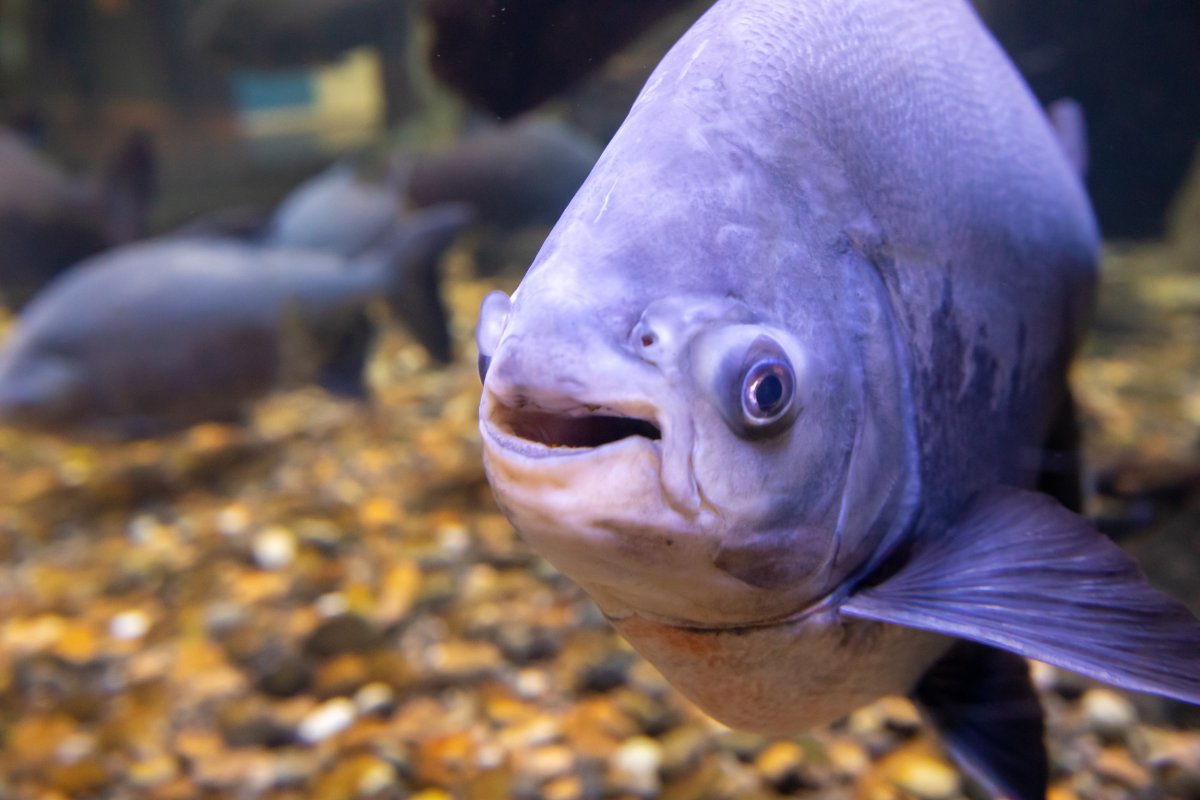A young boy fishing in Oklahoma reeled in a surprise catch this weekend when he found a close relative of the piranha at the end of his line.
The boy, an 11-year-old named Charlie Clinton, caught the strange fish in a neighborhood pond, the Oklahoma Department of Wildlife Conservation (ODWC) said in a Facebook post.
The fish turned out to be a pacu, a close relative of the piranha, which is native to South America.
"Pacu have been caught in a few fisheries in Oklahoma before. Non-native pacu in Oklahoma waters are most likely the result of individuals buying them as pets and releasing them when they outgrow their tank," the ODWC explained in the post.

"That's terrifying," one person commented under the post.
"Ohhh My Goodness!!!!!" another said.
Pacu are usually found throughout the Amazon, Orinoco, São Francisco River and Río de la Plata Basins. Despite being cousins of the piranha, known for their characteristic sharp teeth and murderous reputation, pacu have flatter, squarer teeth and usually feed on plant matter instead of flesh.
"Pacu can reach sizes up to 3.5 feet and 88 pounds," the ODWC said in the post. "These fish are generally harmless to humans."
A young angler, Charlie Clinton, was fishing in a neighborhood pond over the weekend when he got an unusual bite. Charlie reeled in what turned out to be a Pacu, which is a South American fish...
Piranhas, on the other hand, only grow to around 20 inches long, and have a bite force of 72 pounds, three times their own body weight.
Pacu have been previously found in waterways throughout the U.S., often due to deliberate or accidental release by pet owners. These fish have now become an invasive species in many areas, due to the damage they can cause to local ecosystems.
"Getting big (up to 3ft in length) is part of why these fish are sometimes released into non-native waters. Irresponsible pet owners release pacus with little regard for the harm these fish can cause in places they were never meant to live," the Indianapolis Zoo Global Center for Species Survival tweeted in reply to an ODWC tweet that shared pictures of the pacu.
Getting big (up to 3ft in length) is part of why these fish are sometimes released into non-native waters. Irresponsible pet owners release pacus with little regard for the harm these fish can cause in places they were never meant to live. #FantasticFreshwater #InvasiveSpecies 2/ pic.twitter.com/lZkuuwo5tk
— Global Center for Species Survival (@ProtectSpecies) July 18, 2023
"Pacus can't survive cold water, but they can establish populations outside their native range in warmer climates where they may out-compete native species for food and other resources. Plus, they can introduce diseases and parasites."
Rumors abound that pacus are prone to biting the testicles of swimmers, however, experts state that this is untrue.
"This is actually a myth!" tweeted the Global Center for Species Survival in response to a suggestion that these fish use their teeth for recreational castration.

In the Facebook post, the ODWC urged anyone who finds a pacu in waterways to remove the fish and contact the department.
"They are an exotic, invasive species that can cause damage to our local ecosystems. Anglers who catch pacu in Oklahoma are asked to remove them from the water and contact their local game warden," they wrote.
"As for Charlie, we're told you can find him back at the pond on the grind for his next great catch. We wish you luck and tight lines, Charlie!"
Do you have an animal or nature story to share with Newsweek? Do you have a question about pacu? Let us know via nature@newsweek.com.
Uncommon Knowledge
Newsweek is committed to challenging conventional wisdom and finding connections in the search for common ground.
Newsweek is committed to challenging conventional wisdom and finding connections in the search for common ground.
About the writer
Jess Thomson is a Newsweek Science Reporter based in London UK. Her focus is reporting on science, technology and healthcare. ... Read more
To read how Newsweek uses AI as a newsroom tool, Click here.






